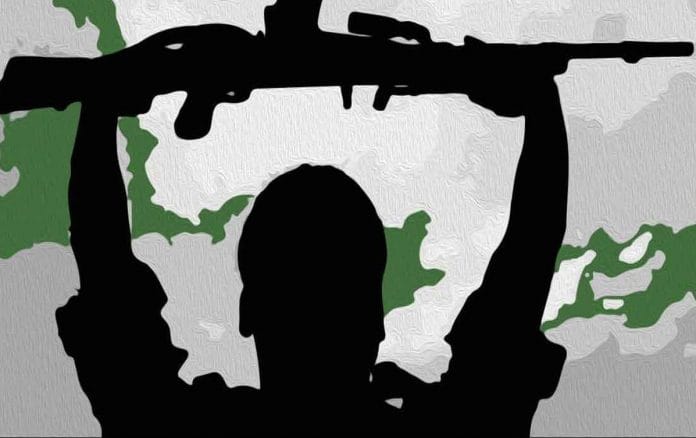Abdul Rehman al-Dakhil, whom the US deems a senior LeT commander, not on the radar of Indian intelligence agencies.
New Delhi: Last week, the US state department designated Abdul Rehman al-Dakhil, allegedly an operational commander with the Lashkar-e-Taiba (LeT), as a Specially Designated Global Terrorist (SDGT).
India was quick to welcome the move, with the Ministry of External Affairs spokesperson Raveesh Kumar saying the US announcement vindicated “India’s consistent stand that internationally designated terrorist groups and individuals, including the Lashkar-e-Taiba and its front, the Falah-e-Insaniyat Foundation, continue to operate from and raise financial resources with impunity in Pakistan.”
Now, it turns out that Indian security agencies know little about the man. Officials here admit that Dakhil, believed to have first carried out attacks in India between 1997 and 2001, was never on their radar. He allegedly continues to be a LeT commander in Jammu.
“He does not feature on the list of the most dreaded terrorists who are wanted. This is possibly because he was not involved in operations but was behind logistics, which includes arranging of funds and ammunition for attacks. But his name never cropped up in any of the cases reported in that period,” an officer, on condition of anonymity, told ThePrint.
Also read: Days before Pakistan polls, Imran Khan’s party inducts US-designated terrorist
The official added that Indian agencies focus more on ideologues than on those who provide logistical support, as they often remain in the background.
“The CIA definitely seems to have more information on this man. It is also because he may have never appeared in any of the intercepts. It appears that he may have worked on the organisation’s finances, that too from Pakistan and Afghanistan,” an officer said.
‘A global terrorist’
According to the US State Department, Dakhil was first behind attacks in India for a four-year period ending in 2001.
He was, however, captured in Iraq by UK forces in 2004, and was held in US custody in Iraq and Afghanistan until his transfer to Pakistan in 2014.
The US state department believes that Dakhil returned to work for LeT and in 2016, was made the LeT divisional commander for the Jammu region.
He is reportedly a close aide of Zaki-ur-Rehman Lakhvi, the mastermind of the 2008 Mumbai terror attacks.
On its decision to designate him as a global terrorist, the US State Department statement reads, “The designations seek to deny Dakhil the resources to plan and carry out terrorist attacks. Among other consequences, all of his property and interests subject to US jurisdiction are blocked, and US persons are generally prohibited from engaging in any transactions with him.”
Bid to fracture supply chain
Along with putting Dakhil on the SDGT list, the US has designated two other LeT members as global terrorists — Hameed Up Hassan and Abdul Jabbar, one of whom has worked with Falah-e-Insaniyat Foundation, an alleged LeT front that collects and sends funds to Syria.
According to experts, the US too is now concentrating on terrorists who act as the logistical backbones of these organisations. “The US has shifted to target those responsible for logistics to fracture the supply chain,” an officer explained.
Between 2003 and 2012, the US has declared a number of LeT members as specially designated global terrorists including the likes of Amir Hamza, Sajjid Mir, Abdullah Muntazir, and Zakir-Ur-Rehman among others.
Terming its latest decision as a message to Pakistan, the US state department said, “These people continue to operate freely in Pakistan running for elected offices, holding rallies, raising funds and plotting and training for terror activities.”
Also read: The UN’s Kashmir report is weirdly silent on Pakistan’s dreaded terrorist groups






